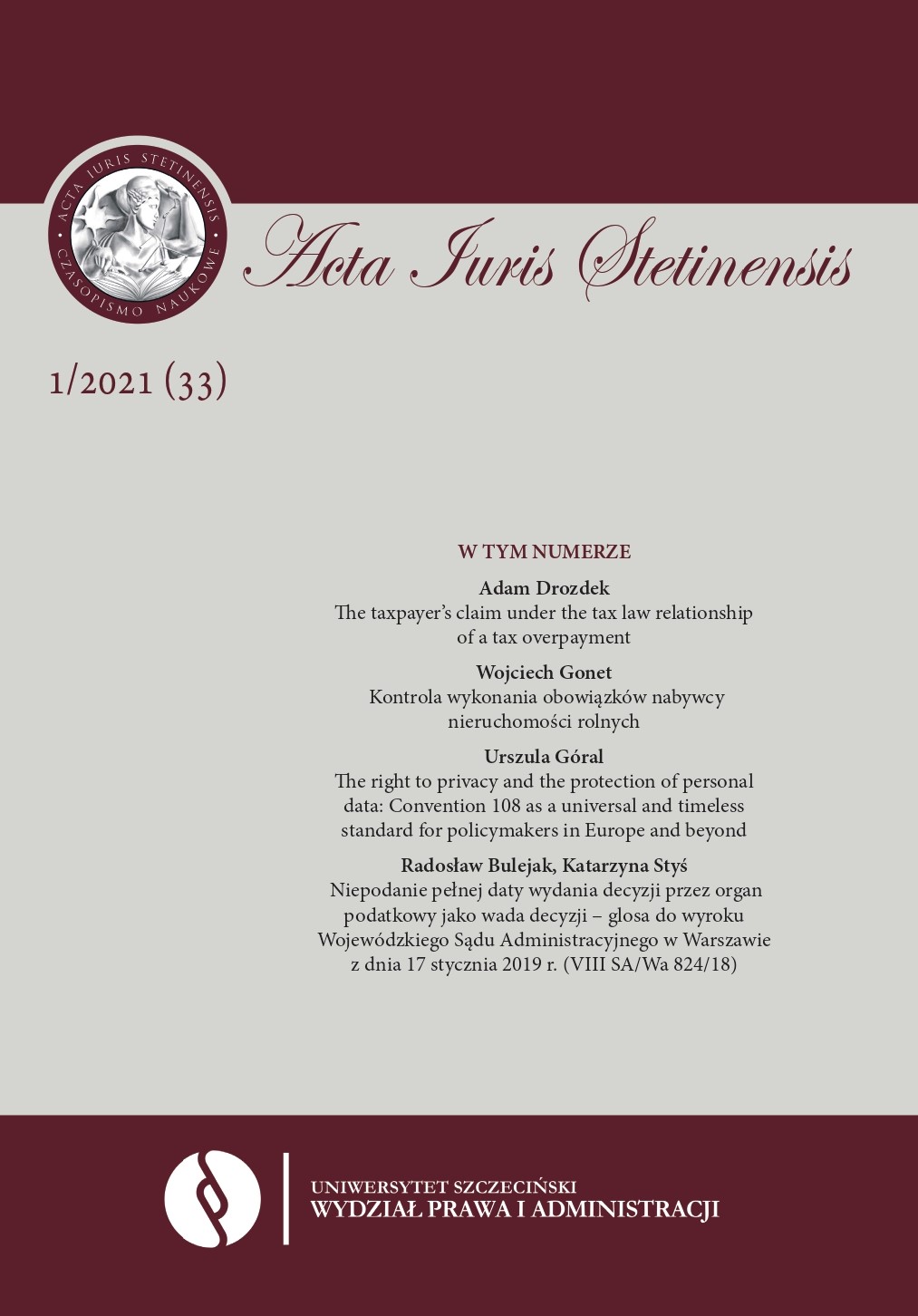Niepodanie pełnej daty wydania decyzji przez organ podatkowy jako wada decyzji – glosa do wyroku Wojewódzkiego Sądu Administracyjnego w Warszawie z dnia 17 stycznia 2019 roku (VIII SA/Wa 824/18).
Failure to provide the full date of the decision issued by the tax authority as a defect of the decision – a gloss to the judgment of the Voivodeship Administrative Court in Warsaw of 17 January 2019 (VIII SA / Wa 824/18)
Author(s): Radosław Bulejak, Katarzyna StyśSubject(s): Law, Constitution, Jurisprudence, Civil Law, Commercial Law, Court case
Published by: Wydawnictwo Naukowe Uniwersytetu Szczecińskiego
Keywords: administrative decision; vitiation of administrative decisions; defect gradation theory
Summary/Abstract: This article concerns the analysis of whether the indication of an incomplete date of an administrative decision by a tax authority constitutes a qualified defect, obliging the administrative court to declare the contested act invalid. A correct individual administrative act should comply with both substantive law and procedural law. Any violation of these regulations should be assessed as issuing a defective administrative act. A defective administrative decision may therefore be of substantive and procedural nature. The concept of defectiveness of an administrative act is based on the theory of defect gradation connected with the variety of sanctions. The authors are critical of the judgment of the Voivodeship Administrative Court in Warsaw of 17 January 2019 (VIII SA / Wa 824/18), deeming, following the doctrine, that the defectiveness affected by a tax authority’s decision was not a grave, qualified violation of procedural law, which would require the sanction of nullity. The defect in the contested decision, as perceived by the Court, should be removed in one of the procedures for rectifying the decision as an insignificant defect that does not affect the resolution of an individual’s case (in terms of both substantive and procedural law). As a result, the Court was obliged to resolve the case on its merits. The authors of the study use the analytical research method, based in particular on administrative literature and jurisprudence.
Journal: Acta Iuris Stetinensis
- Issue Year: 2021
- Issue No: 33 (1)
- Page Range: 149-160
- Page Count: 12
- Language: Polish

